Kenneth Atchity's Blog, page 158
May 6, 2016
6 Common Writing Errors Even Bestselling Authors Make

1. Show, don’t tell
This might be the most commonly cited mistake among editors. Authors are naturally prone to telling rather than showing. This means that rather than letting the reader experience a story through action, dialogue, thoughts, and senses, the author summarizes or describes what has happened. They often do this by info-dumping prose or by stating a character’s emotions rather than showing how those emotions are conveyed.
Though this admonition may seem like Writing 101, I still find myself scribbling in the margins of even professional authors’ manuscripts, “Show, don’t tell!” It’s amazing how easy it is for authors to fall into the trap of intruding on the story through narrative, instead of letting the characters demonstrate by their own words and actions the point they’re trying to get across. Let the characters tell the story, and don’t underestimate the reader’s ability to draw what they need from compelling dialogue. – Marsha Zinberg
2. Weak opening narrative
Ever dropped a book after reading the first few pages? That’s usually what happens when the author starts the story in the wrong place. It’s an easy mistake to make. While the author knows something exciting will happen soon enough, it’s not obvious to the reader. If they’re not immediately hooked, chances are they won’t stick around long enough to find out what “something exciting” is.
A significant issue I see with many authors is inserting too much backstory [at the beginning]. A reader’s interest has to be developed from the start, which suggests having vivid characterization and action (not meaning explosions, but tension, movement, ideas in opposition) from the get-go. Long, explanatory passages, even if beautifully written, can stop a narrative before it even begins to stretch its legs. – Tom Bentley
3. Over-describing the action
Over-describing is when the author provides unneeded details about the characters’ actions. This slows the pace, lessens tension, and interrupts the flow of the scene.
I find that many writers have a hard time letting readers intuit action — especially physical action — in a scene. It’s very common to find characters who, for instance, “walk across a room, open a door, walk through the door, and then close the door.” Such detail can become laborious for readers and slow down pacing. All that’s really needed is for the character to “walk through the door.” Readers will naturally intuit the rest. – Laura Chasen
4. Unbelievable conflicts
In many fiction genres, conflicts shape the story. Whether they’re external or internal conflicts, it’s important to give those conflicts substance and believability.
Basing conflicts on a misunderstanding, something that could be solved if only the characters were to have a simple conversation, is unsatisfying for the reader and something we see time and again from newer authors.
All stories will have conflicts set out by the plot for the characters to overcome, the peaks and troughs of the journey the characters go on. These external conflicts may be necessary to move a story along, but it’s not what keeps a reader itching to turn the pages. The most satisfying stories also have the main characters dealing with their own internal emotional conflicts — something that is specific to them, that keeps them from the love interest, that makes the case they’re working on personal, that stops the quest they’re on from being easy. This internal conflict is what emotionally involves the reader in the story, in rooting for the character, and seeing the character conquer this in the end is what makes for the most exciting and enticing stories.
The best way to create internal conflict is to really dig deep into the character. Think about what’s driving them, what their motivations are, what their background is, what has happened in the past to make them who they are. From this, think about the emotions they would experience when placed in situations that tap into their conflict and bring these out on the page. – Laurie Johnson
5. Viewpoint
Determining the correct point of view for the narrative is a huge part of a story’s success. We know, for example, that most YA is written in the first-person point of view because younger readers identify with the immediacy of the first-person emotional experience. Romance is usually told through deep third-person omniscient, since an author needs the ability to move seamlessly from the hero to heroine’s perspective. POV determines who tells a story and how — which is why getting it right is critical to a book’s success. For more in-depth information, here is an excellent post on how to choose the right narrative viewpoint and narrator.
Because both omniscient viewpoint and deep character viewpoint can both be written in the third person, inexperienced writers frequently confuse them and allow artifacts of omniscient viewpoint to clutter stories that are otherwise written in deep point of view. Such errors could include describing a ship at sea and then noting that “the captain had no way of knowing a storm was forming over the horizon.” If the captain is the viewpoint character, then the author cannot reveal what the captain does not know. Revealing multiple characters’ thoughts in a single scene is a feature in omniscient viewpoint, but in deep POV, it’s an error. Even the tag “she thought” following a line of internal monologue is out of place in a deep POV story, since if we are in the character’s viewpoint we can’t possibly be reading anyone’s thoughts but hers. – Kristen Stieffel
6. Assumption of knowledge
Authors often write many drafts of their novels. After several revisions, it can be easy to forget that the readers only know what information they’re provided on the page.
This is, to me, the greatest pitfall in authoring any novel. We have a wealth of knowledge about our book, from personal experience and observations to careful research. We have saturated our minds with endless details, as well as visions of our story, characters, and environments. We then write from that empowered position; often, assumption of knowledge skewers our story.
If you wish to expose the spots in your story where you have galloped past pertinent info, do a “character report.” Follow each character in the book and jot down the information you gather from that character — not what you already know, but what you’ve “given” to the reader. Do the same with any world, language, etc. The holes created by assumed knowledge will be laid bare, and you can cleverly fill them up! – Maria D’Marco
Read more at BookBub

Published on May 06, 2016 00:00
May 4, 2016
Prepare Your Book for Effective Promotions
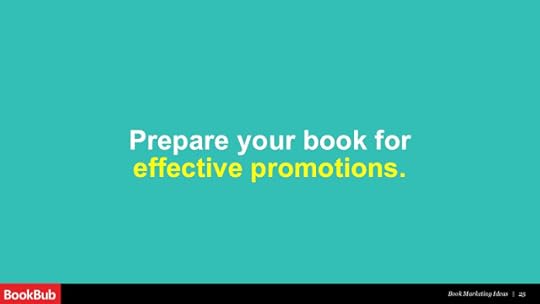
Make book samples end on a cliffhanger. For example, on Amazon, users can download the first 10% of a book for free or read it on-site via the “Look Inside” feature. This gives you the opportunity to score a sale if the reader wants to continue after the sample.
Cross-promote books in the back matter. Include a list of all your titles in each of your books’ back matter. Update this back matter whenever you launch a new release. If you have the time, create a version of your book for each retailer with retailer-specific links to each book.
Include an excerpt in the back matter. Immediately after the acknowledgements, include the first chapter of the next book in the series, or one of your popular backlist books. Bookend this excerpt with links to purchase that book.
Link to your mailing list in the back matter. On your “About the Author” page, encourage readers to sign up for your mailing list. If they sign up, you’ll be able to contact them any time you want to promote your backlist titles, new releases, giveaways, price promotions, etc.
Optimize your book description. BookBub’s A/B testing shows that descriptions that include quotes from authors, awards, and language that caters to your audience (e.g. “If you love thrillers, don’t miss this action-packed read!”) have higher engagement rates.
Include target keywords on product pages. Narrow down a list of 5-7 keywords your audience typically searches for, then incorporate these words into your description headline, description copy, and keyword sections on each of your retailer product pages.
Choose relevant subcategories on retailer sites. By targeting the most relevant sub-genres for each of your books, you’ll increase your chances of being on the retailer bestseller charts for a specific category, which could drive higher sales volume. You’ll also avoid disappointing readers who were expecting something different.
Tie different versions of your book together. Different authors and platforms use different systems, but find a way to connect your print edition with your ebook, audiobook, and international editions. This ensures that visitors to your product page can easily purchase the format they prefer.
Link series books together by name. If you’ve published a book series, create a master name for the series and add it to the product’s title on retailer sites. This will help retailer sites make automated recommendations within the series, and help readers find more books in the series to read.
Make books available for pre-order. On the retailers that allow them, you may want to get your future titles up for pre-order as soon as possible. This way you can include the cover of the next book in the back matter of your existing books with a link to the pre-order page.
Make books available internationally. With growing book sales and millions of readers, international markets can be attractive targets for authors and publishers looking to expand their potential readership. Optimize your cover design for each region and reach out to relevant local bloggers who can help spread the word. Read more at BookBub

Published on May 04, 2016 00:00
May 3, 2016
REVIEW BY MERISSA - Brae MacKenzie by Kenneth John Atchity
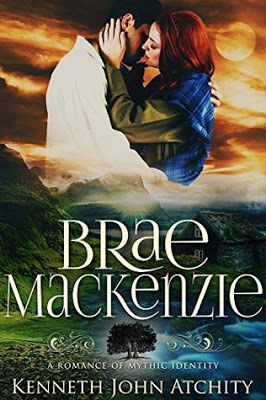 Add to Goodreads
Add to Goodreads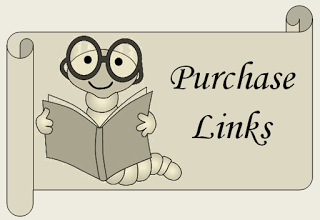 Amazon UK | Amazon US | B&N
Amazon UK | Amazon US | B&N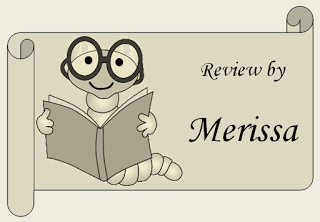 4 out of 5 (very good)
4 out of 5 (very good)In this story, Brae MacKenzie has to learn that just because outwardly you may appear to have everything, it doesn't always satisfy your soul. Also, if you are feeling something, then it is undoubtedly real, even if no one else understands.
Brae seems to have everything that she could want. Even her best friend thinks so and even goes as far as to say that Brae's husband's death furthers that. It will remain the perfect, fairy tale marriage. However, Brae feels lost inside and doesn't know what to do. On a trip to London, she makes an impulsive decision and boards a train for Glasgow. What follows is almost trance-like, as she meets her guide and follows the journey on her grandmother's map.
Very well written, with no editing or grammatical errors that I found, this book was full of surprises, with snippets into Scottish history as an added bonus. Definitely recommended.
* I received this book from Story Merchant in return for a fair and honest review. *
Merissa -Archaeolibrarian - I Dig Good Books!
Goodreads | Amazon Author PageGenre:Young Adult, Contemporary, Romance
Synopsis:Brae MacKenzie, a successful San Francisco painter, is a woman who seems to have it all but who's felt a sense of loss and longing since childhood. Her artistic passion hasn't filled that void, and with the untimely death of her charismatic husband, the old pain resurges.
Brae's father senses his daughter's pain and before she embarks for an exhibit in England he hands her a family heirloom hidden away for years...a letter: "Since you are still among the living, your heart is not broken...follow the map," Brae reads, "to Scotland."
The London exhibit, in its ultra-chic hollowness, prompts Brae into taking and advice of that bewildering letter. She hops a train for Glasgow.
When the train goes through a tunnel and emerges in a forest of "Christmas trees," Brae suddenly feels something. This is her stop; she just knows it.
She met at the station by Damon, a stranger, or perhaps not. He becomes her own personal tour guide to the myths and history of a past she never knew--and to a romance she never dreamed of having.
She had it all, beauty, love, wealth and fame, but her soul was empty. It wasn’t the loss of her perfect husband, her painting did not give her joy, she was empty inside, something was missing. Brae MacKenzie by Kenneth John Atchity is an almost dream-like journey of the heart and soul for one woman, lost within her inner torment she could not identify. Perhaps the exhibit she was attending in England would sooth her pain, or just maybe a family heirloom will lead her to her destiny in Scotland.
Curiosity and a feeling that she must go to Scotland sends Brae on a quest to find answers. Little did she know they would come in the form of a handsome man with a head full of stories, a heart full of legends and a soul that fits hers, perfectly.

Published on May 03, 2016 00:00
April 28, 2016
Marking the 400th anniversary of Shakespeare's death
Published on April 28, 2016 10:24
April 26, 2016
How to Design Your Book’s Cover

Hire a cover designer. A great cover design can have a major impact on your sales numbers. For example, romance writer R.L. Mathewson went from selling five or six copies per day of her novel, Playing for Keeps, to over 1,000 per day by updating her cover design. It’s usually worth hiring a professional to create a polished cover that appeals to readers in your genre.
Test cover variations with your audience. Have your cover designer create multiple variations and use data to choose your cover design. Test two variations against each other using tools like PickFu, UsabilityHub, or Playbuzz.
Unify cover designs in a series. Create consistent branding between books in a series to make purchasing decisions easy for readers. A unified cover and title style often helps readers recognize connected titles and encourages them to purchase subsequent books.
Re-launch a book with a new cover. Redesigning a book cover can be a great way to reinvigorate book sales. It gives you the opportunity to “re-launch” your book according to the ever-evolving tastes of genre readers.
Add a blurb to your cover. If you’ve managed to secure a blurb from a well-known author, consider including it on your cover design. Try to use a short blurb so it’s easy to read and you don’t clutter your design.
See more at BookBub

Published on April 26, 2016 00:00
April 22, 2016
Tome Tender Reviews Kenneth Atchity's Brae MacKenzie
 Brae MacKenzie by Kenneth John Atchity
Brae MacKenzie by Kenneth John Atchity (Romances of Mythic Identity Book 1)
 She had it all, beauty, love, wealth and fame, but her soul was empty. It wasn’t the loss of her perfect husband, her painting did not give her joy, she was empty inside, something was missing. Brae MacKenzie by Kenneth John Atchity is an almost dream-like journey of the heart and soul for one woman, lost within her inner torment she could not identify. Perhaps the exhibit she was attending in England would sooth her pain, or just maybe a family heirloom will lead her to her destiny in Scotland.
She had it all, beauty, love, wealth and fame, but her soul was empty. It wasn’t the loss of her perfect husband, her painting did not give her joy, she was empty inside, something was missing. Brae MacKenzie by Kenneth John Atchity is an almost dream-like journey of the heart and soul for one woman, lost within her inner torment she could not identify. Perhaps the exhibit she was attending in England would sooth her pain, or just maybe a family heirloom will lead her to her destiny in Scotland.Curiosity and a feeling that she must go to Scotland sends Brae on a quest to find answers. Little did she know they would come in the form of a handsome man with a head full of stories, a heart full of legends and a soul that fits hers, perfectly.
Kenneth John Atchity has created a world of beauty and ugliness, joy and sorrow and wrapped it in the gauze of belief, belief that sometimes things are not black and white, they are not obvious, they just are. Follow a broken soul as it finds the glue to repair itself in the arms of another as love blossoms between two people that would never have met, if not for an old and cryptic letter. Not a read to rush through, but one to savor and feel each scene, each emotion, including the love between family and friends that cannot quite reach Brae’s dark inner pain. Realize the truth that not money or fame can bring the joy of true love. Although not a long read, Mr. Atchity has mastered the art of storytelling that will float through your heart.
Reposted from Tome Tender

Published on April 22, 2016 12:29
April 16, 2016
Guest Post: The Summer War by Milton Lyles
Published on April 16, 2016 09:02
April 14, 2016
MEG Got her Man!
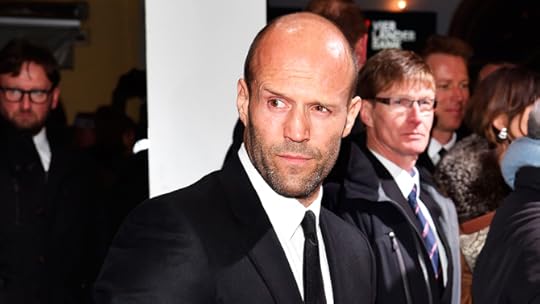 BabiradPicture/REX/Shutterstock Jason Statham will star in the Warner Bros. shark action movie “Meg,” sources confirmed to Variety.
BabiradPicture/REX/Shutterstock Jason Statham will star in the Warner Bros. shark action movie “Meg,” sources confirmed to Variety.“National Treasure” director Jon Turteltaub is helming.
Dean Georgaris is writing the screenplay based on Steve Alten’s novel “Meg: A Novel of Deep Terror.”
The book revolves around two men who band together to fight an ancient shark threatening the California coast. The Megaladon, considered one of the largest and most powerful predators in history, can reach a length of 60 feet.
This time around the shark will be terrorizing the coast of China rather than California — a change that helped in bringing on Gravity Pictures as a co-financier.
Originally set up at Disney in 1997, “Meg” fell into limbo after the studio was unable to get it into production before another shark pic, “Deep Blue Sea,” hit theaters.
Statham was most recently seen in Fox’s action comedy “Spy” and will reprise his role in “Fast 8.” He is repped by CAA, Current Entertainment and Bloom Hergott.

Published on April 14, 2016 12:01
April 11, 2016
Where is the Muslim Gandhi?
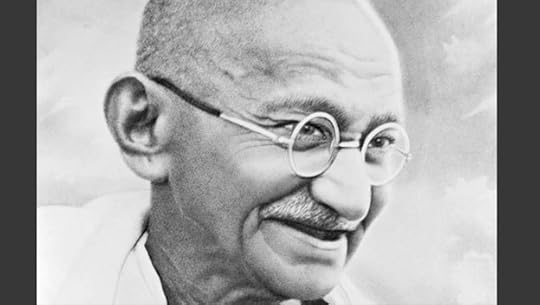
Muckraking headlines scream “Islamic Terrorists” in one ear. In the other, the President of the United States, perhaps in an excess of responsibility, has a hard time saying out loud that our western way of life is imminently threatened by an evil originating within the doctrines of Islam.
Liberals have a harder time admitting their fear-based bigotry than Conservatives. The latter have no qualms in applauding Donald Trump’s ideas of registering, if not rounding up, Muslims in the free world and putting them into some sort of modern surveillance version of the internment camps for Japanese-Americans during World War II.
But after the Brussels’ attacks, even Liberals admit that the western system doesn’t seem capable, or even willing, to protect itself from these jihadists.
The Islamic jihadist purpose is clear: to use fear to destroy us.
What is our purpose?
While we’re sitting around at our freedom bars and libraries trying to figure that out, here’s a quicker and more effective hope:
A Muslim Gandhi.
The profound silence of the mainstream, non-fanatic, Muslim community is deafening. Random imams saying that “Islam is a religion of peace” just ain’t cuttin’ it. They’re so unconvincing we can’t even remember their names. An Arabic-American friend, who was raised in Saudi culture, confirms that children are regularly taught to hate us and to earn Muhammed’s eternal love by offing us.
The relative silence from peaceful Islam is also worsening anti-Islamic prejudice that’s increasing daily in the threatened countries of the west—a prejudice that’s further worsened by the perceived refusal of Muslims to integrate with their adoptive societies and demanding, in many cases, that we be ruled by their sharia law instead of their being ruled by the laws of the country that welcomed them to its shores. This situation will deteriorate even more as Muslim populations continue to grow within western countries due to immigration and their per-family fecundity. Twenty-five years from now, from sheer force of numbers, they will be dominating congresses, parliaments, and diets.
Three theories for mainstream Muslim silence heard most often:
1) Mainstream Muslims are terrified by the terrorists too.
2) Mainstream Muslims are hedging their allegiances, ready to jump either way depending on whether the jihadists succeed or fail.
3) The press, intent on selling sensationalism, isn’t covering the “peaceful Islam.”
We can all hope it’s the first reason. But we’re getting impatient with the spate of recent reports that mainstream Muslims complain about “growing anti-Islam sentiment.” Why don’t the complainers acknowledge the reasons for it?
Reasons for profiling are written in blood on our sidewalks.
Sure, most enlightened folk understand that the whole cannot be blamed for the sins of the part. But the human race has never been suffused with enlightenment. If ten mafia murders happen in your town in a month, citizens begin looking askance at all Italians. Ironic, isn’t it, that African Americans look harmless in an airport compared to Muslim tourists. As much as Hillary, Bernie, Kasich, and other fair-minded politicians proclaim political correctness, you can’t really expect the common man or woman to blanket forgive all past and future transgressions against their security by people who just happen to be Muslim. To most normal folk, 1 + 1 + 1 = 15. One transgression after another, all in the same pattern of being committed by Muslims against their tolerant, majority-non-Muslim neighbors, will add up in most peoples’ math as: “Islamic people want to kill us.” Occasional random Muslim victims don’t change this simple-minded math. Ask Donald Trump.
Why hasn’t the enormous worldwide Muslim community long ago come forward with a mainstream Muslim visionary, who can speak out on behalf of their common interest with the western mainstream in preserving freedom for all? To insist the Muslims worldwide publically proclaim Islam a religion of peace?
Surely there must be such potential leaders in a neighborhood mosque near you. Why aren’t they speaking out? Why don’t we know who they are? Why isn’t the most vocal of them a household word by now? Why aren’t we able to list their good works on behalf of the greater community?
Maybe time for Muslims to use Craig’s List?
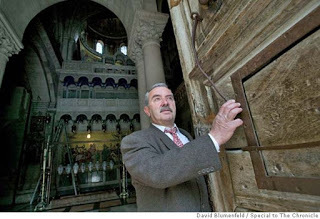 Wajeeh Y. Nuseibeh (by David Blumenfeld)
Wajeeh Y. Nuseibeh (by David Blumenfeld)Photo by David Blumenfeld/Special to The ChroniclePhoto by David Blumenfeld/Special to The Chronicle“Wanted: Non-fanatic, distinguished, eloquent practicing Muslim needed immediately for all media appearances, live speaking engagements, reeducating liaison with jihadists, and interventions during terrorist attacks. Must be willing to stand up to jihadist threats and fatwahs, put family’s security on the line, be relentless in spreading the vision of Muslims throughout the world living in daily harmony with non-Muslims--like the Nuseibeh family who for 1300 years has been keeper of the key at the most sacred non-Muslim shrine in Israel (See San Francisco Chronicle)--tolerant of all religious beliefs despite his or her own allegiance to Allah—and be willing to lose head if necessary.”
Gandhi was willing. Martin Luther King was. Pope Francis demonstrates his willingness every time he meets the public in Africa or America, or even in St. Peter’s Square.
“A man or woman whose commitment to the promise of humanity transcends self and fear. Compensation: Nobel Prize, and the gratitude of a beleaguered humanity.”

Published on April 11, 2016 15:04
April 10, 2016
Warner, CMC announce 12-movie package that includes MEG
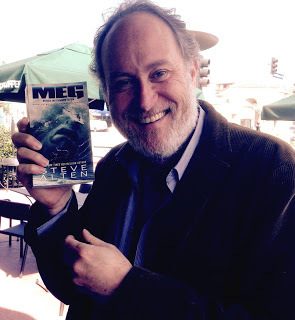 Jon Turteltaub in talks to direct. After forming joint venture Flagship Entertainment in Hong Kong in September last year, Warner Bros. and China Media Capital (CMC) have announced plans for the production and global release of a dozen movies under the Flagship Entertainment banner over the coming two years. Chinese news website china.org.cn reported Warner Bros. chairman Kevin Tsujihara as saying the high-quality co-productions would appeal to a wide demographic of audiences both in China and around the world.
Jon Turteltaub in talks to direct. After forming joint venture Flagship Entertainment in Hong Kong in September last year, Warner Bros. and China Media Capital (CMC) have announced plans for the production and global release of a dozen movies under the Flagship Entertainment banner over the coming two years. Chinese news website china.org.cn reported Warner Bros. chairman Kevin Tsujihara as saying the high-quality co-productions would appeal to a wide demographic of audiences both in China and around the world.According to CMC chairman Li Ruigang, the film package would include an adaptation of best-selling science-fiction novel MEG: A Novel of Deep Terror by Steve Alten and cost over $100 million to produce. MEG tells the story of a deep-sea diver who while diving in the Mariana Trench is attacked by what he believes to be a megalodon, a gigantic predecessor of modern sharks thought to have been extinct since the Pleistocene era. Nobody believes him, but as the events unfold he encounters more of the creatures, some of which manage to make their way to the surface and wreak havoc.
Read more at Film Journal

Published on April 10, 2016 00:00





